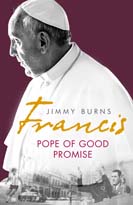I held the World Cup for a whole thirty seconds last night.
Ok, it was only a replica- (see news item elsewhere on this site) but it brought back good memories. So I write this today in deference to Carlos Oppe, one of my most loyal, persistent, and-just about-publishable commentators. (My Maradona CNN.com opinion piece has stimulated transatlantic abuse)I hope it will encourage others to join a civilised debate on this and other matters discussed on this site.
The human wave rose in a town in South Africa, gathered force across the Atlantic, before rolling across the stark landscape of Castile and crashing onto the streets of Madrid. The heat and dust of a suffocating local summer was refreshed by sheer human effervescence as over a million Spaniards filled the centre of the Spanish capital, celebrating the return of their heroes, the winners of the 2010 World Cup.
After being honoured by the King and Queen at the Royal palace, the players had boarded an open roofed double-decker bus and begun a slow progress to the banks of the River Manzanares. Their first real encounter with the masses was destined to be in the Plaza Espana, by the statue to Don Quixote, the errant knight that personified a nation’s dreams and his companion, the pragmatic Sancho Panza. Del Bosque is both Quixote and Sancho. A quintessential Spaniard. Beyond, thousands lined the streets and avenues, before closing in as the bus,went slowly by with its cargo of heroes, each individual citizen stretching out their hands in collective admiration.
This was no ordinary homecoming. For a start, the celebrations extended across the country from Seville in the south to Barcelona in the North, a reflection of the rich mix of regional identity represented by the champions. This was not only the first Spanish team to win the Cup in the world cup’s history but one that had done so with style and nobility, without political interference or cultural prejudice. La Roja the red one was how the team had been nicknamed, because of the passion that ran through its veins. This was the colour of a sporting achievement recognised by fans across frontiers, not the red of bullrings and executions squads and fiery flamenco that for centuries had set Spain apart from the rest of the world. Football played with style, and unity of spirit and purpous.
The World Cup tournament in South Africa would be remembered for many things-England’s abject failure, the similarly humiliating exit of France and Italy, Maradona’s eccentricities followed by Argentina’s cashing defeat at the hands of the Germans, the brutishness of the Dutch, the pervasive good cheer of the local people-but most of all for the fact that the best side won, and their fans knew how to celebrate.


Comments